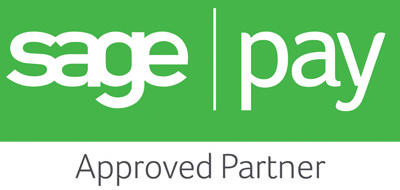Hundreds of Page Rank Factors?
It's one year since Russian search engine Yandex experienced leaks that revealed the factors it uses to determine page rank. While this might not seem relevant to businesses operating outside Russia and neighbouring countries, the revelations in the leak were indicative of the factors that western search engines (and let's be honest, we mean Google) also use.
As Search Engine Optimisation (SEO) specialists combed through the leaked files they identified around 17,600 individual factors that could be used to determine page rank, but it is thought that only around 690 of them were ever actually used. The popular figure for Google is 200, which was mentioned by top engineer Matt Cutts during a 2009 speech.
So we know that technically there are hundreds of factors that influence the page rank, and therefore search result placement of a website. Is it feasible for marketers to address every single potential one of these? In short, no.
Not all factors will be relevant to all sites. There are e-commerce specific factors that apply to online stores that won't be relevant to businesses who don't conduct transactions online. There will be content hub and resource factors which don't apply to the websites of local takeaway restaurants, so while a plethora of factors exist, they don't all need to be addressed by everyone. It's a bit like a supermarket with thousands of products, but each shopper only buys 40 to 50 items with any regularity.
We can split our SEO attention into three broad categories:
- Content
- Page experience
- Links
Within these categories there are many factors, but they serve as useful clusters. And useful clusters is one of the major factors within Content.
Content
Content is the bread and butter of your website. Without it, there's nothing to consume for visitors or for search engines. Useful content, which is regularly updated and which is easy for visitors to navigate through is the goal. A good information architecture (IA) plan keeps content organised in useful clusters that are easy to find is a must, no matter the type of content.
Content should also follow the EEAT protocol: Experience, Expertise, Authoritativeness, Trustworthiness. Content which receives many views, where the users stay on the page for a reasonable length of time, which is linked to from other reputable sites, and which solves search queries well is the ultimate goal.
Google's AI for reading website content is fantastic at determining whether a page actually answers a question, or just mentions a topic in passing, so for your pages to rank well it's vital that your content does serve this purpose.
Page experience
This is again a multi-factorial aspect which includes page load speed, whether it displays well on multiple devices (particularly the device being used for a particular query), whether large adverts obscure the readability, whether it uses a lot of bandwidth to load data-heavy content and more. While working on page experience might not ensure you're at the top for every keyword, focusing on this (and therefore user experience) can give you the edge over a competitor for crucial keywords.
Links
Links have a murky past in the context of SEO, because back in the early days of search engines the number of incoming, outgoing and internal links was vitally important in determining page rank. Google then sought to punish link farms by downplaying the importance of links, but the truth is they really do matter.
Google uses links on webpages to access and index them, so a page on your website that's not linked to from anywhere else, even internally, may never be found. A cluster of internal crosslinks demonstrates a content cluster, which plays well to the EEAT protocol. Links from reputable sites are also looked upon favourably, as are mutual links.
In conclusion, while there are hundreds of page rank factors these can actually be simplified into much broader and more relevant categories. Knowing each factor is our job at Parua, so leave the technical stuff to us and reap the benefits of excellent search engine optimisation.
